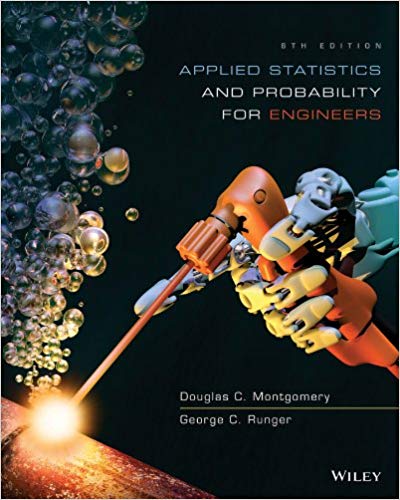If the standard deviation of hole diameter exceeds 0.01 millimeters, there is an unacceptably high probability that
Question:
If the standard deviation of hole diameter exceeds 0.01 millimeters, there is an unacceptably high probability that the rivet will not fit. Suppose that n = 15 and s = 0.008 millimeter.
(a) Is there strong evidence to indicate that the standard deviation of hole diameter exceeds 0.01 millimeter? Use α = 0.01. State any necessary assumptions about the underlying distribution of the data. Find the P-value for this test.
(b) Suppose that the actual standard deviation of hole diameter exceeds the hypothesized value by 50%. What is the probability that this difference will be detected by the test described in part (a)?
(c) If σ is really as large as 0.0125 millimeters, what sample size will be required to detect this with power of at least 0.8?
DistributionThe word "distribution" has several meanings in the financial world, most of them pertaining to the payment of assets from a fund, account, or individual security to an investor or beneficiary. Retirement account distributions are among the most...
Step by Step Answer:

Applied Statistics And Probability For Engineers
ISBN: 9781118539712
6th Edition
Authors: Douglas C. Montgomery, George C. Runger





